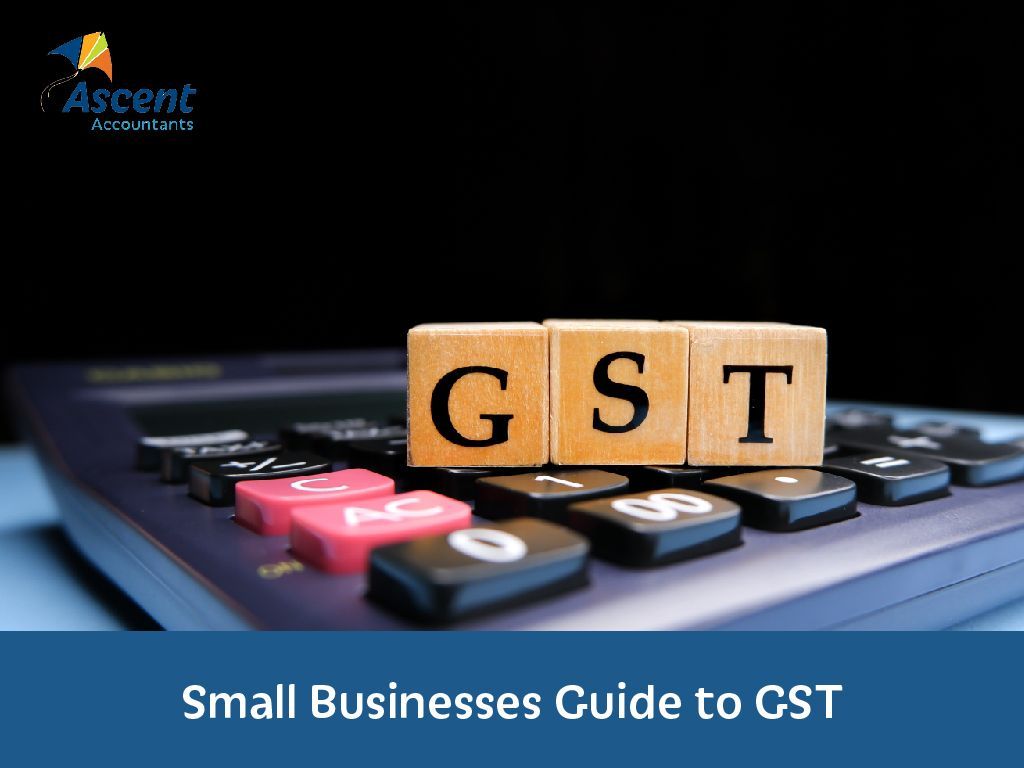Small Businesses Guide to GST

Whether you’re just starting out or have been established for a while, decoding your GST obligations can be a daunting task.
In Australia, most goods and services are subject to the goods and services tax (GST). This 10% tax is included in the price consumers are charged for a product or service. Business owners are then required to pay the GST collected from the sales of their products and services to the Australian Tax Office (ATO) periodically.
To understand your responsibilities, read on for our brief GST guide for small business owners.
Does your business need to pay GST?
Contrary to popular opinion, not every business that sells products or services is required to register for GST. According to the ATO, your business is required to register for GST if you meet any of the following criteria:
• Generate $75,000 or more in revenue annually.
• Operate a non-profit organisation which generates $150,000 or more in revenue annually.
• Provide taxi, limousine or ride-sharing travel services.
If you meet one of these criteria, then your business is required to register for GST and you should be charging your customers GST on the sale of your products and services. However, you might be exempt from charging GST if your product or services falls within a special category.
Does GST apply to your products and services?
As a general rule, GST applies to most products and services sold in Australia. However, there are some exemptions to this tax for classes of items deemed essential. The ATO has a comprehensive list of the products and services which are exempt from GST, but here are some types on that list:
• Basic food products.
• Education courses and materials.
• Medical, health and care services.
• Menstrual products.
• Medicines, medical aids and appliances.
• Water, sewerage and drainage.
• Precious metals.
• Exports and products sold in duty-free shops.
Registering for and paying GST.
Registering and paying GST is very straightforward. If your business meets the above conditions, you’ll need to register for GST with the ATO or risk facing penalties. With your Australian Business Number (ABN), you can register via Online Services, by phone, through your accountant or tax agent, or by completing a form. You’ll be notified in writing to confirm your registration.
Small businesses typically pay GST quarterly through business activity statements (BAS). When you’re registered for GST with an ABN, the ATO will automatically send a BAS to the business myGov account when it’s time to lodge. You can lodge this online or through your accountant or tax agent. You can pay via BPAY, credit card, debit card or payment reference number (online only). Even if you can’t pay the amount due, you should still lodge your BAS on time.
What are GST credits?
When you purchase supplies for your business, the amount of GST you paid is refundable in the form of a credit. This is because GST is a tax for consumers, not businesses or enterprises.
When you go to pay the ATO for the GST you’ve collected through your sales, you can subtract the GST you paid in supplies. So essentially, you’re credited (or refunded if purchases exceed debits on sales) for the GST paid on those items.
What do invoices need to include?
If you’re claiming a GST credit on a purchase greater than $82.50, you’re required to have a tax invoice as evidence. It should include the following information:
• The supplier’s trading name and ABN.
• The invoice date.
• The words “Tax Invoice”.
• A description of the items (i.e., the quantity and price you paid).
• The GST included in the purchase.
• Your ABN (if the item is worth $1,000 or more, including GST).
Need a hand?
We know that GST can be a headache for small businesses and that’s why we’re here to help. For accountants you can depend on to expertly prepare your financial statements, contact Ascent today.
Need help with your accounting?








